Inside The Coolest New Boutique Hotel In Paris
The Pavillon Faubourg Saint-Germain combines literary history and contemporary design.
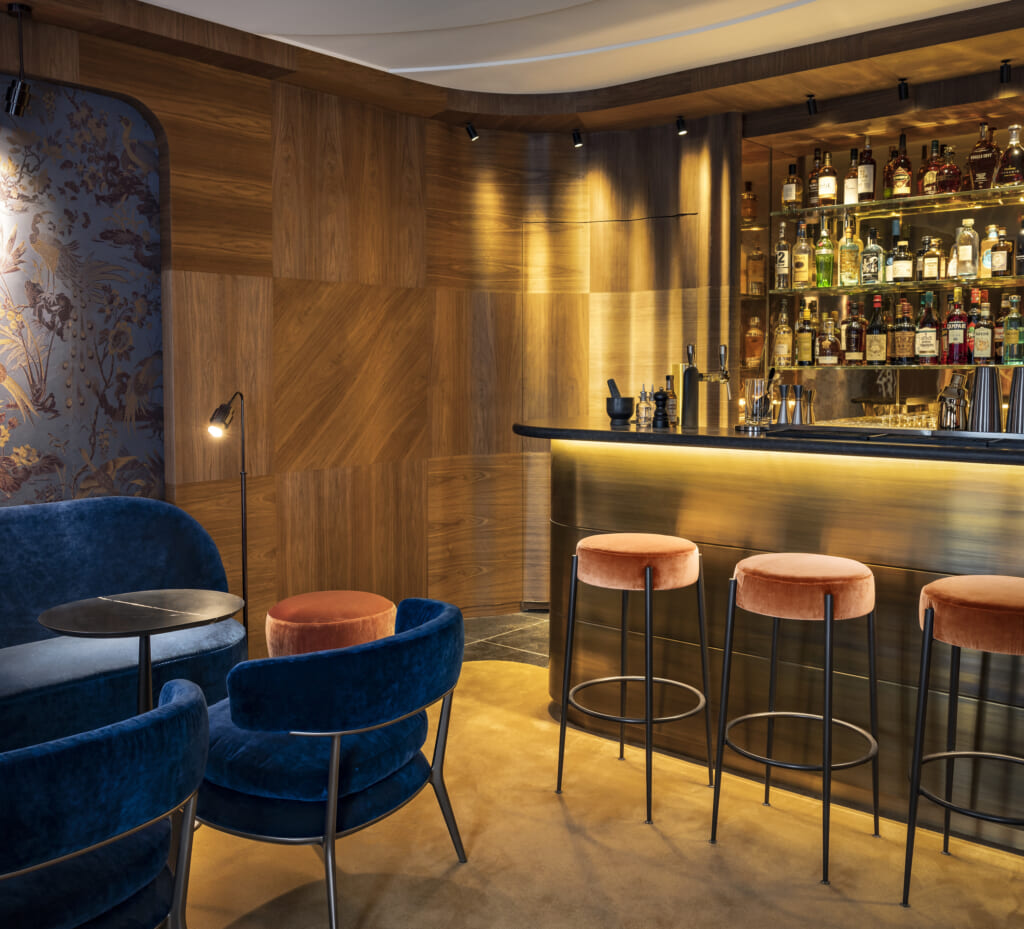
The Parisian neighborhood of Saint-Germain-des-Prés has always been known as one of the city’s coolest and most stylish quarters. It is home to both Ralph Lauren’s flagship Parisian townhouse boutique, complete with its own bar and restaurant, along with many other fashion powerhouses; as well as legendary spots like Café de Flore and Les Deux Magots, where the likes of Ernest Hemingway and Pablo Picasso used to hang out.
This past April one of the quarter’s most storied hotels re-opened as the Pavillon Faubourg Saint-Germain, combining boutique luxury and contemporary design with a rich literary history. Occupying three historic buildings dating back to 1642, in a past incarnation it was home to writers including T.S. Eliot and, most notably, James Joyce, who finished his famed novel Ulysses while staying on the property.
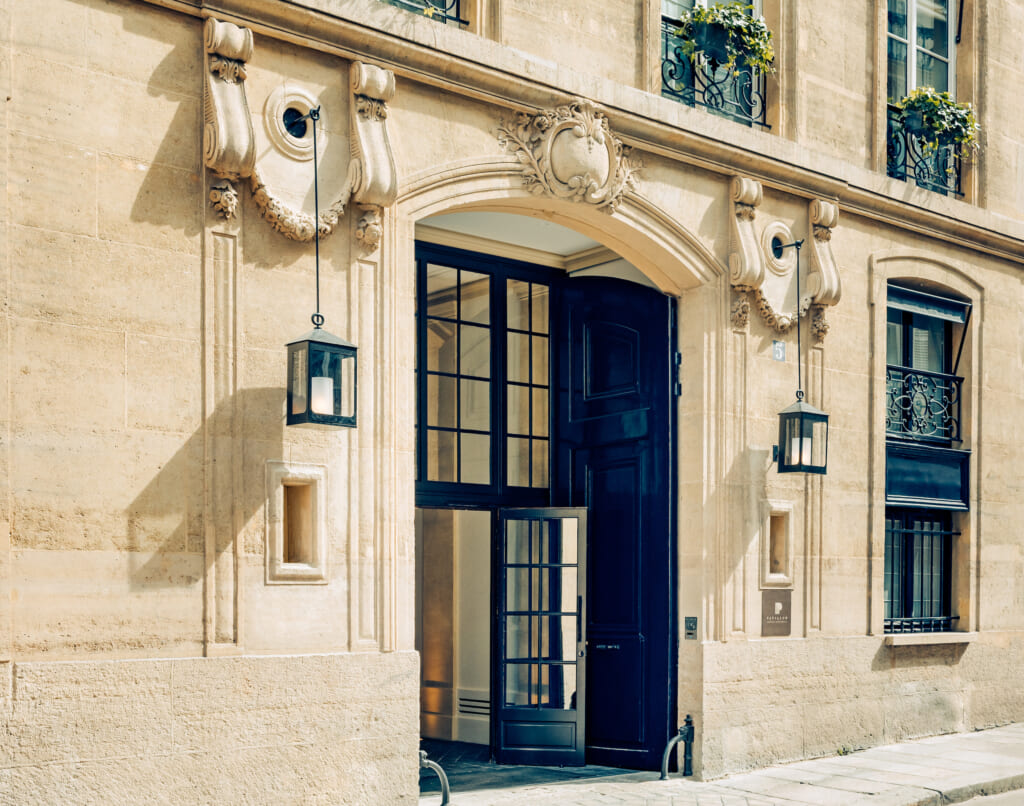
Following a complete refurbishment, the hotel “remains true to its past and pays homage to the stories that have unfolded within its walls” while embodying an unmistakable discreet luxury and elegance. The hotel’s main principles are “haute couture decor and made-to-measure service,” along with top-notch venues for dining and drinking.
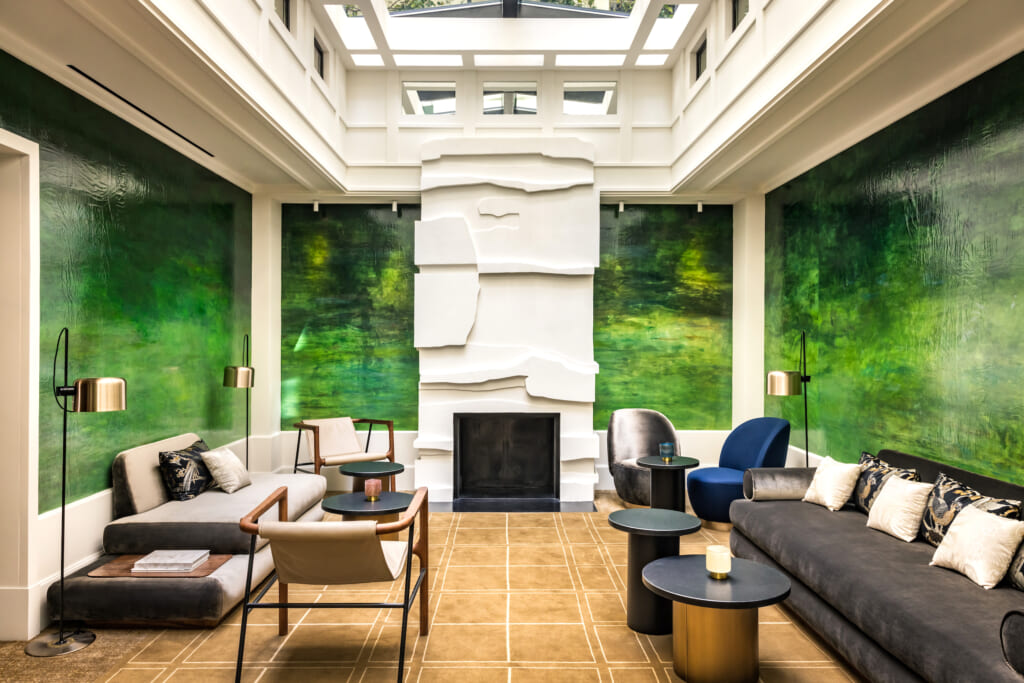
Brought to life by interior designer Didier Benderli, the hotel is the latest opening from boutique group, Chevalier Paris, and features 47 individually-styled rooms and suites, a tranquil spa, a bar, and new restaurant, Les Parisiens, from award-winning chef Thibault Sombardier, all created to offer a “refined and contemporary take on the quintessential Parisian experience.”
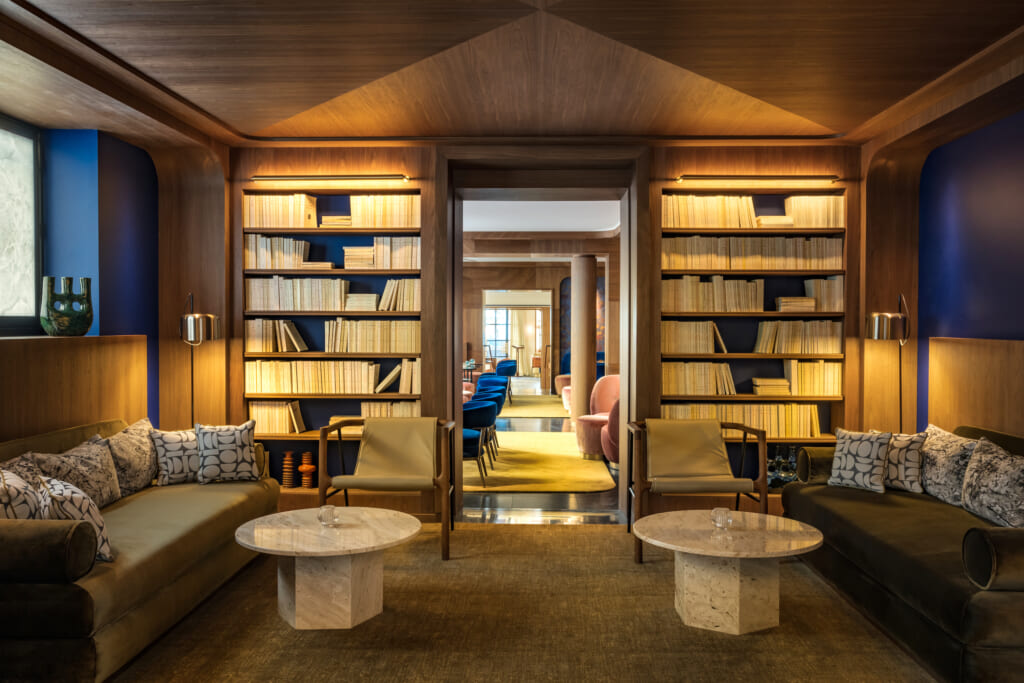
At the center of the hotel is a book-filled Library, which acts as a passage to the various communal areas, with “cosy nooks offering a secluded space for reading, relaxation and quiet contemplation.” Here the walls and ceilings are wood paneled, thick rugs muffle footsteps,” and the bookshelves are lined with immaculate copies of [famed French publisher Gallimard’s editions.
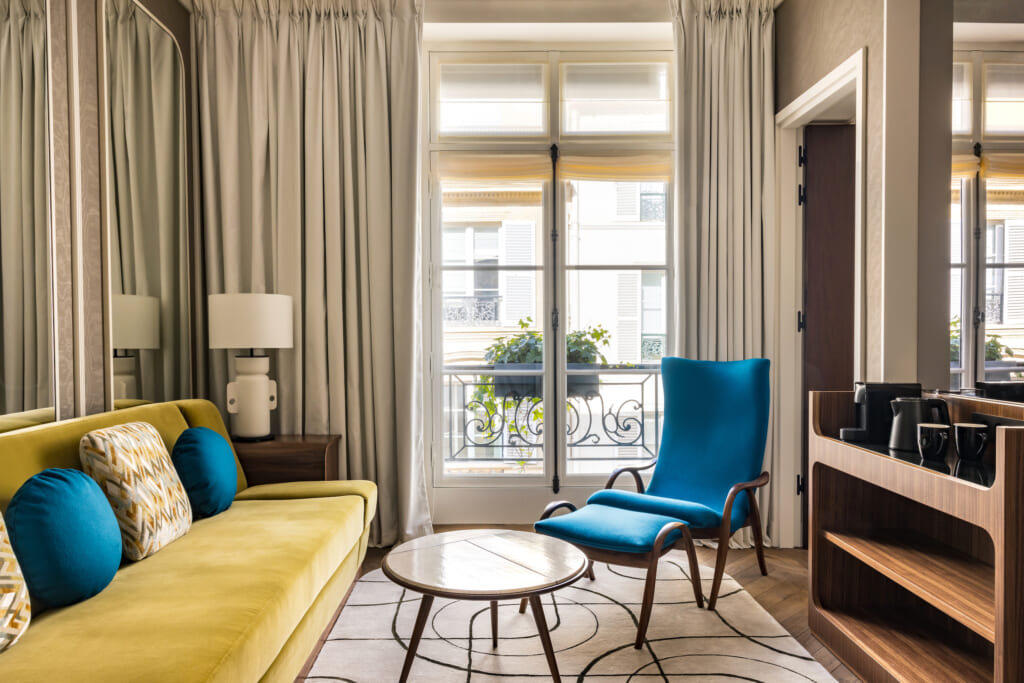
Each of the 47 rooms and suites is designed to “complement the contemporary and sophisticated style of the spa, restaurant and communal spaces.” Solid oak herringbone parquet flooring creates “a timeless aesthetic, while discretion and efficiency are prioritized with details such as in-room televisions concealed by decorative mirrors.”
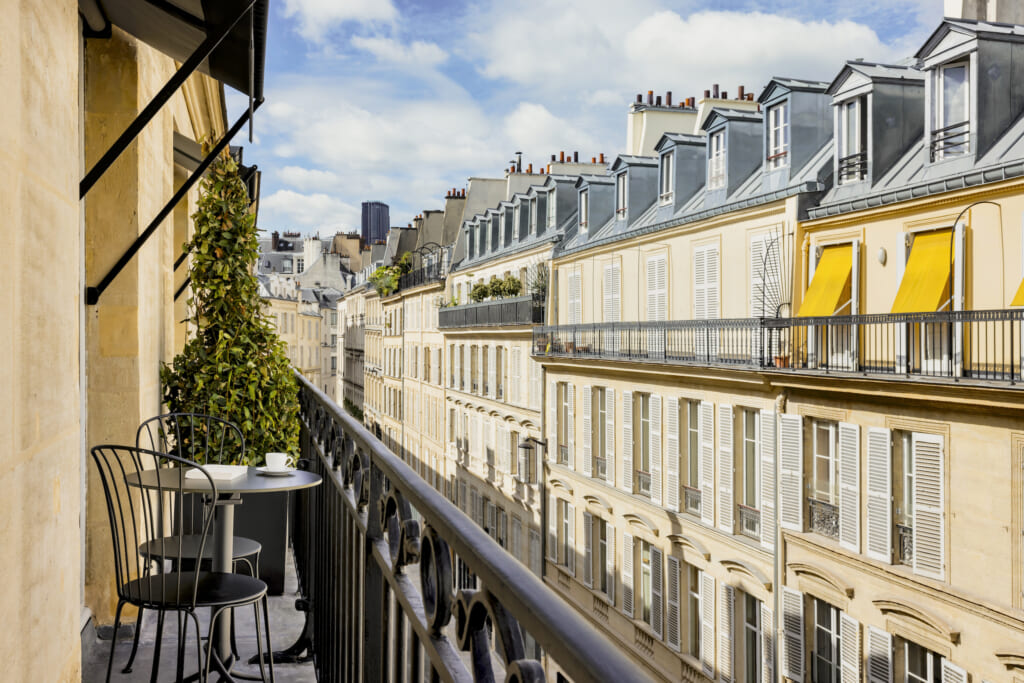
Some suites have balconies, while others offer views over the Parisian rooftops from oversized windows. Some suites also have wood-paneled dressing rooms and separate steam rooms with showers. Throughout, terrazzo flooring and marble wall panels decorated with geometric art deco detailing compliment the wood and brass fittings.
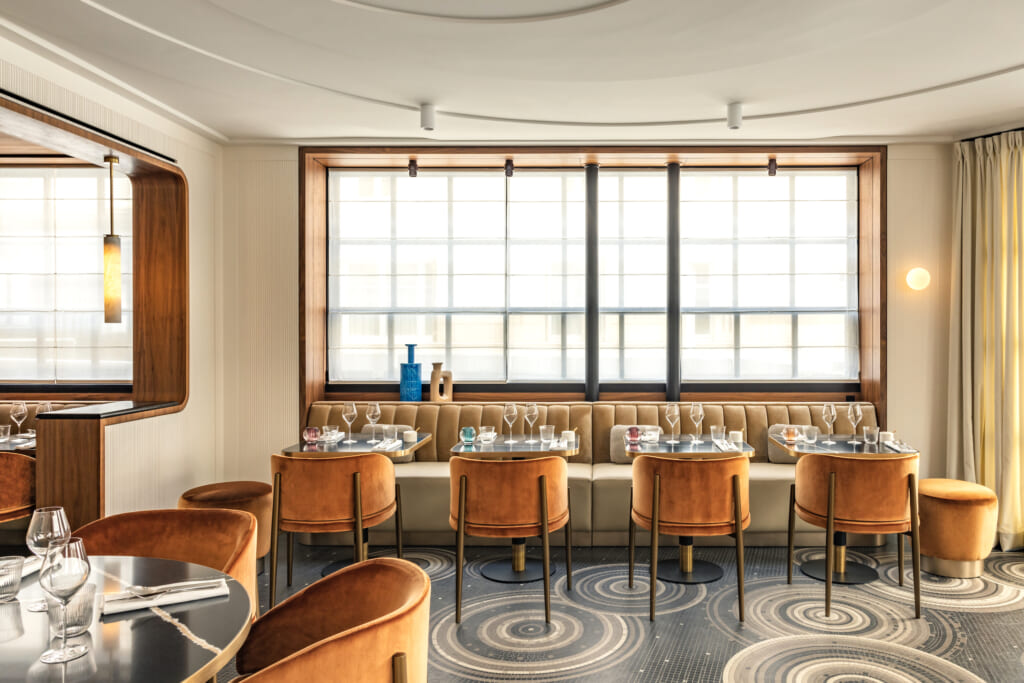
At the new restaurant, curved seating and banquettes combine with wooden accents to provide a “warm and intimate feel,” with leather and velvet benches, quartzite tables and expansive mirrors that “reflect the liquid gold of the lacquered canvases adorning the walls.” At the bar, named after James Joyce, there are tones of midnight blue and powder pink velvet offset by rich wood and embroidered Oriental wall panels.
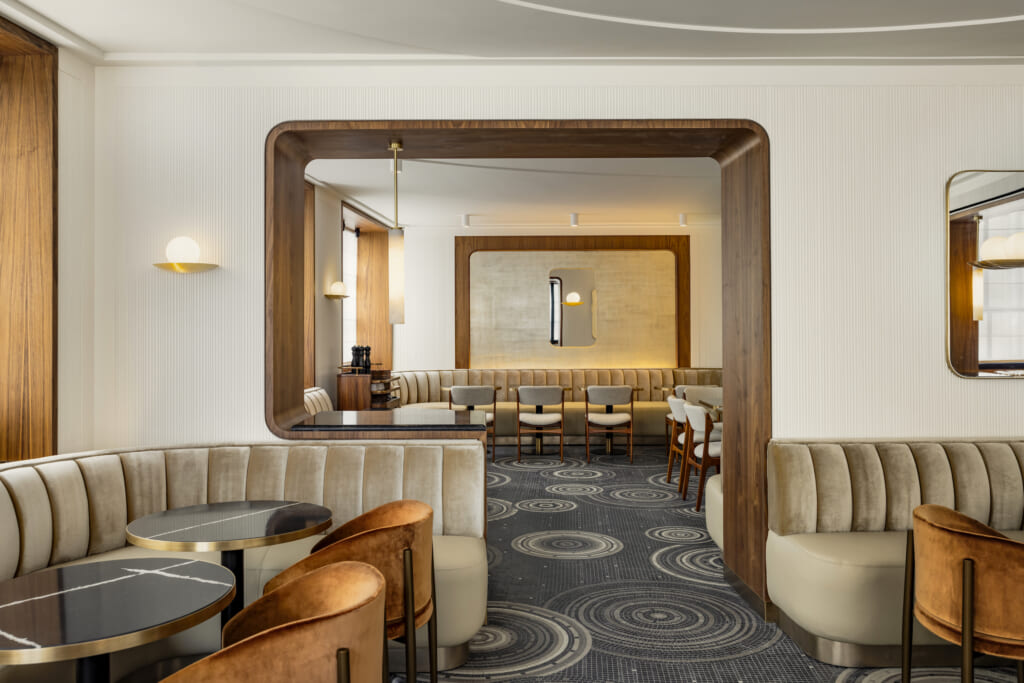
Already making its mark on Paris’ restaurant scene, Top Chef alum Thibault Sombardier’s Les Parisiens is “inspired by the flavors of his childhood spent growing up between Burgundy and Beaujolais. His menus “expertly combine haute cuisine with a less inhibited style of cooking, showcasing a passion for locally sourced seasonal produce.”
It’s the perfect place to repair for a meal after one of the James Joyce Bar’s signature literary-inspired cocktails, such as Bloom Like a Geisha— a reference to Ulysses’ protagonist, Leopold Bloom, made with Sakura passion flower-infused rum, yuzu and vanilla; and perhaps, to work on your own literary masterpiece, inspired by the captivating locale.
